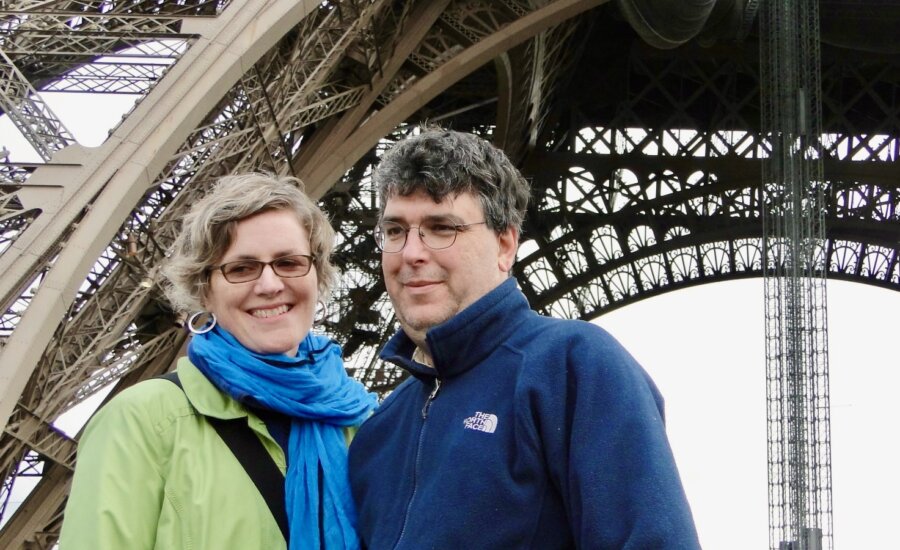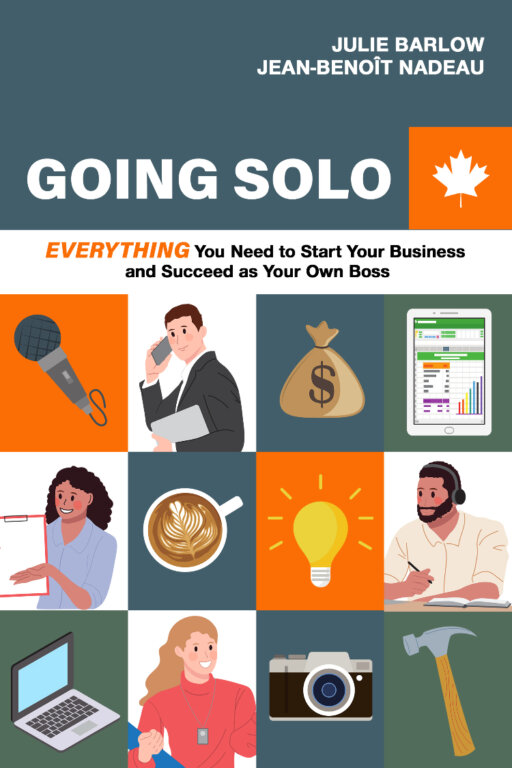Taking risks and trusting your gut: Julie Barlow’s self-employment tips
The long-time freelancer and co-author of Going Solo shares advice for Canadians who want to start a business or side hustle.
Advertisement
The long-time freelancer and co-author of Going Solo shares advice for Canadians who want to start a business or side hustle.

In recent years, thousands of Canadians have picked up a side gig or started a business, according to a study by Quickbooks. Self-employment can have a steep learning curve—and Julie Barlow is here to help. Barlow, who’s based in Montreal, is an inspiring example of a successful freelancer: she’s a magazine writer, a French translator and the author of eight non-fiction books. Her latest book, Going Solo: Everything You Need to Start Your Business and Succeed as Your Own Boss (Sutherland House), came out in September. Co-written by Barlow’s husband, Jean-Benoît Nadeau—who’s also self-employed—Going Solo is a comprehensive guide to self-employment in Canada. Below, Barlow shares her thoughts on entrepreneurship, saving money and not being afraid to invest in your business.

My father-in-law, Yvan Nadeau, who co-founded one of Quebec’s big engineering firms, is my money hero. He taught me to save for retirement but take risks and invest when necessary, even if that means borrowing. In short, he taught me how to think like an entrepreneur. He was a great inspiration for everything that Jean-Benoît and I write about in Going Solo.
Cross-country skiing, roller skiing, swimming, hiking, doing Pilates, tai chi—anything else to stay active and hang out with friends. I love having people over for dinner, too. Writing is a terribly sedentary job, so it’s important to find ways to move. And being active and eating home-cooked meals don’t cost much.
I would be doing exactly what I am doing—writing books. But it would be nice to not worry about paying the bills.
When I was 12, I spent a year saving up enough money to pay for a swim camp in Michigan. It taught me to think big, set goals and stick to them.
A vinyl Queen record. I spent a lot of money on music when I was a teenager. I worked at a music store and spent most of my earnings on vinyl records. All those records and concerts paid off because I got my start as a journalist writing music reviews.
My first job was working as a busgirl at a local restaurant when I was 15. I really liked the teamwork part of restaurant work. With my first paycheque, I’m sure I bought another vinyl record.
When I started out [as a professional writer] in the ’90s, there were more grants and bigger book advances for writers [than there are now], so for my first few projects I wasn’t very careful about keeping track of expenses. Things had changed a lot by 2013, when I took my kids to Paris for an entire year to research a new book. The grant I was expecting didn’t come through, and I had to be careful with our money to pull it off.
More generally, when you’re self-employed, it can be hard to predict your income from one year to the next. So, I recommend tracking your expenses. It shows you where you are with your spending and where you can cut when you need to—and you will have to. It requires some discipline, but it’s paid off for me. Jean-Benoît and I provide some advice about keeping track of expenses in Going Solo, along with templates.
It was from my father-in-law, Yvan, who was an engineer and entrepreneur. He taught me to start saving young. I started putting money into an RRSP while I was still in university. It’s really important if you are dedicated to being self-employed all your life, since you won’t have a pension from work.
I’ve allowed myself to be convinced to take out more health and travel insurance than I needed. When you’re self-employed, you need some security, but I wish I had been more critical about insurance earlier in my career. I would have saved a lot of money.
I’d prefer a large sum of money, which I would use to finance more book projects.
I see a lot of people banking on the growing value of their real estate these days, but they forget that if they sell their house, they will still have to live somewhere, and that will be expensive, too. Unless you have investment properties, people should consider real estate more as savings than as an investment. As Jean-Benoît and I explain in Going Solo, for entrepreneurs, owning a house is an asset you can borrow on to start your business.
Well, speaking of real estate, from a purely financial perspective I regret selling my first house, which I bought in my 20s, just before the market took off in Montreal. I had an opportunity to live and work in France, and I didn’t want the hassle of maintaining a house in Canada. Today, it would be worth four times the price. But moving to France was the best professional decision I ever made, so it’s hard to really regret the decision, and I did buy another house later.
Value to me is something that improves my life in a tangible way. I spend a silly amount of money on athletic footwear and sports equipment because being active truly improves my life. I always buy whatever I need to be able to stay active.
The first major purchase I made was the house I mentioned. It took my husband and me years to find the right place and renovate it, but the timing was wrong. As I said, I sold it for a good reason—because of a great career opportunity. Even as an entrepreneur, I think it’s more important to follow your gut than always make decisions based on money.
Sometimes I have to take on debt for a worthwhile project. As we explain in our book, entrepreneurs shouldn’t sweat a bit of debt. You can’t develop a business without investing and taking risks.
I recently spent a month in Paris doing research for a book. Was this a “splurge” or an investment? I guess it depends on how well the book sells. Only time will tell.
The Paradox of Choice: Why More is Less (Ecco, 2004) by Barry Schwartz. It explains the stress we experience from having too much choice about what to buy, and how to simplify our consumption habits. Getting sucked into buying too many things is hard on the wallet and also terrible for the environment. I wouldn’t say I’m frugal, but I try to be careful about my purchases.
My swimming pool membership card.
My cross-country skis, followed by my ski boots.
It depends on where you are in life.
Ditto.
Ditto.
The self-employed can’t really budget—so track your expenses.
Pay off my last big splurge—the trip to Paris.
Share this article Share on Facebook Share on Twitter Share on Linkedin Share on Reddit Share on Email